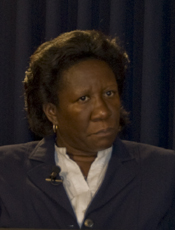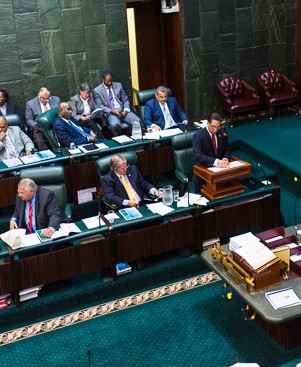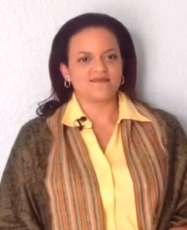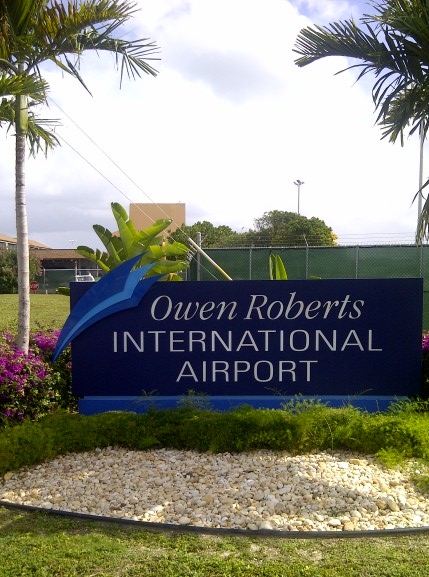Archive for July 2nd, 2014

Cuban migrant hospitalized after self-harming
(CNS): Immigration and prison authorities say they are currently investigating the circumstances surrounding a self-harm incident at the immigration detention centre in George Town. A Cuban migrant awaiting deportation, who is one of dozens of Cubans who have been detained by the local authorities recently, is understood to have injured himself today and has undergone surgery at the Cayman Islands Hospital. Officials have given no details regarding the severity of the injuries that the person has suffered, what weapon or other implement was used or whether the victim is a man or a woman.
Security at the Fairbanks Detention Centre has been a matter of growing concern for officials as the number of migrants shows no sign of slowing down but the Cuban authorities are said to be dragging their feet over repatriation. Government is due to meet with officials from the neighbouring island in September to discuss the current agreement regarding the treatment migrants who are forced to land in Cayman during the journey from Cuba to other destinations, usually with the goal of reaching the USA.
With a number of recent break-outs from and major disturbances at the detention centre involving detained Cubans, the prison service has now taken over the security, which had been managed by a private sector firm.

DPP not cops’ rubber stamp
 (CNS): The director of public prosecutions has defended the independence of her office in the face of criticisms that corruption offences are not being vigorously pursued by the crown’s prosecutors. Cheryll Richards, QC, said that the office is “not a rubber stamp for the actions or beliefs” of the police service and was created under the constitution as an independent entity. Richards insisted that all cases submitted for consideration to the office are considered on the basis of independent and professional judgment exercised by the government employed lawyers. She pointed to the successful prosecution over the last 14 months of four public officials under the Anti-Corruption Law and the Penal Code.
(CNS): The director of public prosecutions has defended the independence of her office in the face of criticisms that corruption offences are not being vigorously pursued by the crown’s prosecutors. Cheryll Richards, QC, said that the office is “not a rubber stamp for the actions or beliefs” of the police service and was created under the constitution as an independent entity. Richards insisted that all cases submitted for consideration to the office are considered on the basis of independent and professional judgment exercised by the government employed lawyers. She pointed to the successful prosecution over the last 14 months of four public officials under the Anti-Corruption Law and the Penal Code.
In a statement released Wednesday, Richards responded to criticisms in the local media after the struggles of the Anti-Corruption Unit (ACU) were reveal on Cayman News Service Monday and reported in the Cayman (formerly the Caymanian) Compass Wednesday. Commenters on CNS also raised significant concerns about the public prosecutor’s office as well as tabout he government’s commitment to the spirit of anti-corruption.
But Richards said that just because the office had rejected five files submitted by the specialist unit, that did not mean that it was refusing to take cases forward.
“However strongly an investigator may feel about the merits of the case he has submitted for ruling, it remains the sole responsibility of this Office to objectively determine whether the material presented passes the evidential test, i.e. that there is a realistic prospect of conviction if the evidence is produced to a reasonable tribunal and that the case merits prosecution in the public interest,” she said. “An investigator’s sentiment about the quality of his investigation is irrelevant. What matters is the evidence that is presented for review and whether that evidence can prove all the legal elements of a particular charge under any law.”
Richards dismissed the idea that the office was dragging its feet where corruption is concerned and said it was about a legal test correctly undertaken by lawyers trained to make such decisions. She said this applied across the 2,321 cases received from all law enforcement agencies for review during the financial year ending 30 June 2014.
“This Office does not refuse to take forward any case where the evidential and public interest tests are met,” she added.
However, some of the decisions made by the DPP have been criticized as cases that appear to have significant evidence have been rejected as not meeting the public interest test. An allegation of assault against a senior police officer on a junior officer with independent civilian witnesses was rejected by the DPP, while it approved the prosecution of a local lawyer over a trace element of cocaine that experts said defied the ability to measure and was thrown out by the court.
Judges have also criticized public prosecutors in open court for bringing cases with almost no evidence or without any complainants as well as some of the plea bargains accepted by the crown, which has given rise to concerns over the inconsistency of decisions made by the office.
Nevertheless, the DPP stated that all decisions in the office are made on the basis of objective professional judgment. Richards also said that when a determination is made that there is insufficient evidence in a case, written reasons are provided to the police and in some cases a second opinion is obtained. She said the RCIPS is generally advised that if new evidence comes to light cases can be revisited.
“This approach is taken for all types of cases, including firearms and murders where the evidence is insufficient and the cases require further investigation,” Richards stated. “It is then a matter for the police to determine whether there are other avenues of investigation which may be utilised to secure the required evidence.”
She said that in a number of instances further investigations have resulted in successful prosecutions when the files were resubmitted.
“Any implication that the Office should be proceeding with a case because it is an 'anti-corruption case', even where the evidence is simply insufficient to do so, would be patently contrary to the rule of law and inimical to the interests of the innocent, who we also have a duty to protect,” Richards added.
See DPP's full statement below.

Karate kids graduate with flying ‘belt’ colours
 (CNS): The Cayman Islands Purple Dragon dojo’s latest grading event resulted in a 100 per cent pass rate among its students. Professor Don Jacob, the founder of the Purple Dragon Don Jitsu Ryu System and world champion, who judged the young martial arts learners said the 100 per cent pass rate showed determination and skill among the local Purple Dragon students.“In total we graded 91 students and were very pleased to say they all passed their individual tests and each went on to the next level of competency,” the professor said. “Grading is very important for Don Jitsu Ryu martial arts students because it allows them to progress by earning the next grade belt colour.”
(CNS): The Cayman Islands Purple Dragon dojo’s latest grading event resulted in a 100 per cent pass rate among its students. Professor Don Jacob, the founder of the Purple Dragon Don Jitsu Ryu System and world champion, who judged the young martial arts learners said the 100 per cent pass rate showed determination and skill among the local Purple Dragon students.“In total we graded 91 students and were very pleased to say they all passed their individual tests and each went on to the next level of competency,” the professor said. “Grading is very important for Don Jitsu Ryu martial arts students because it allows them to progress by earning the next grade belt colour.”
He explained that each grading is a test of the students’ physical abilities as well as their mental determination. “I’m impressed by the standards achieved here at the Purple Dragon dojo in Cayman,” Jacob added.
Sensei Floyd Baptiste said the grading started with 13 students who went from Brown belt Third Kyu to the next level of the Brown belt Second Kyu, while two students went from the second level of Brown belt to Brown Belt First Kyu. For these two students the next stage is preparing for the coveted Black belt,” Sensei Floyd said.
In addition, there were four new Red belts moving up from Purple belt, six students went from Blue belt to Purple belt and fourteen students went from Green belt to Blue belt and one even earned the title of Elite Warrior. There were also two Orange belts that went to Green belt and one White belt that went to Yellow.
The second day of testing focused on beginners, with fifteen young students moving from White belt to Yellow belt, and nineteen Yellow belts moved up to Orange belt, with one earning the title of Orange belt Elite. Fifteen Orange belt students also made it to Green belt.
“We are delighted that each of our students worked so hard to reach their personal goals,” Sensei Floyd said. “Don Jitsu Ryu martial arts training is extremely demanding on students and they have to work very hard to achieve progression within the system. We congratulate all 91 students and we thank Professor Jacob and Sensei Tarick Bowrin for taking the time to grade our students in this way.”

Chamber takes members pulse on PPM government
 (CNS): After more than one year in office the government is the subject of the Chamber of Commerce’s latest on-line survey. The business organization is asking its members to take fill in the electronic questionnaire which takes just a few minutes and poses a number of questions about how the PPM led government is performing. It asks employers about their concerns and priorities, their thoughts on the privatization of government and how it is handling the major projects, as well as how well they think the premier and the opposition leader are doing their $100k plus per annum jobs. (Photo Dennie Warren)
(CNS): After more than one year in office the government is the subject of the Chamber of Commerce’s latest on-line survey. The business organization is asking its members to take fill in the electronic questionnaire which takes just a few minutes and poses a number of questions about how the PPM led government is performing. It asks employers about their concerns and priorities, their thoughts on the privatization of government and how it is handling the major projects, as well as how well they think the premier and the opposition leader are doing their $100k plus per annum jobs. (Photo Dennie Warren)
In his request to the membership Johann Moxam, the chamber president said the Chamber wanted the membership views on the top issues that matter most to them and their businesses and how they think the elected Government is performing after completing one year in office.
“This is your personal opportunity to get involved in shaping the Chamber's public advocacy agenda. Your response will be treated confidentially so we encourage you to be frank with your responses,” he said. “The survey should take less than five minutes to complete unless you wish to elaborate on any question in the comments section.”
To take part in the survey click here https://www.surveymonkey.com/
Cayman twitchers take top tally in Texas
(CNS): A team of local extreme bird watchers won the Rio Grande Valley race to report the most species in a single day when they went to the Great Texas Birding Classic Big Day tournament in April. Although a rookie team when it comes to international competition, the Cayman Cowboys reported 178 different bird sightings. With sponsors pledging $1 a bird for the National Trust, the money will be spent at the Governor Gore Bird Sanctuary.
The team included founders of the Cayman Islands Bird Club Peter Davey and Michael Marsden, who have been birding for over 30 years; Stuart Mailer who leads the National Trust’s Mastic Trail tours and bespoke birding tours throughout Grand Cayman; and Christine Rose-Smyth, a Cayman administrator for the Cornell University citizen science project eBird.
Mailer said that while the team maybe new to competition it was experience and preparation had helped the Cowboys. “Michael’s knowledge of the local area and advanced scouting was invaluable, but ultimately it was a real team effort, with all four birders contributing to our list, while Michael’s wife, Donna Knox, kept track of the results,” he said.
The Great Texas Birding Classic, a month long event, is billed as the world's biggest, longest and wildestbird watching tournament statewide. Now in its 18th year it has awarded over US$800,000 to conservation throughout the Lone Star state as winners prizes goes towards a list of specific projects.
Having won the most sightings category the Cayman Cowboys could choose from eleven Texas bird conservation projects to receive a grant of US$1,000. “The camaraderie of the park rangers and other birders we met during our week in Texas made each of those new life birds even more special,” Mailer added. “We were all agreed that the Friends of Estero Llano Grande State Park proposal would have the greatest impact for boththe birds and birders in our final choice of project to support.”.
The local National Trust will also benefit from the team’s success as sponsors of the 24 hour Big Day pledged $1 per bird, team leader, Rose-Smyth said, With funds raised the National Trust will be able to rebuild infrastructure at Governor Gore’s Bird Sanctuary off Spotts Newlands Road and create improved signage on the Mastic Trail to enable increased appreciation of Cayman’s richest biodiversity.
Pledges can still be made by contacting marketing@nationaltrust.org.ky or Christine Rose-Smyth directly at mcrscay@gmail.com or Stuart Mailer smailer@nationaltrust.org.ky
CIG fighting imported pests
(CNS): Government officials from the agriculture department and the airport are urging the travelling public both to and from the Cayman Islands to be vigilant about bringing in and taking out agriculture products. The “Don’t pack a pest” campaign was launched on Wednesday morning at Owen Roberts international Airport, which aims to raise awareness about the dangers associated with travellers unwittingly as well as deliberately smuggling in items that could cause untold damage due to the pests and insects on fruit, vegetables, meats and even handicrafts. From the red palm weevil to the African giant snail, Cayman must protect itself from invasive species, and a specialist sniffer dog Mia (left) is leading the charge.
In partnership with the US and Florida departments of agriculture, the local agricultural department and the airport joined forces to come up with a campaign to educate and press home the significance of protecting the islands' boarders from invasive pests and to prevent people from taking them out.
Officials revealed that over the years Cayman has been invaded by mealy bug, white fly and citrus fungus, all of which are invasive and arrived via travellers smuggling agriculture products. Brian Crichlow, the deputy director of agriculture, explained that while travellers are usually well aware of the rules and the dangers regarding animal importation, the problem is mostly with plants.
Agriculture Minister Kurt Tibbetts said the campaign and efforts to keep pests out was one of the most important things government had to do but he did not expect it would be the subject of radio talk shows or comments. He pointed out that Cayman has over 100 different resident nationalities coming and going and travelling back with delicacies from home that could pose serious threats to our natural environment and agricultural activity.
He admitted that in days past he too was guilty or travelling back with mangos from Jamaica, as he said like many people at the time he was not aware of the dangers. Tibbetts also warned that even handicrafts made from plant materials can carry unwanted “hitchhikers” that can threaten Cayman’s natural resources and he urged people to be aware of what they can and can’t have.
While officials said that legislation alone cannot prevent pests from crossing borders, the airport now has its own specially trained detector dog, Mia, who can sniff out agriculture products from luggage in sealed packages and even tins. However, physical detection cannot stop everything and the minister emphasised the fact that the more people were aware about what they were carrying the better.
Airport Director Albert Anderson also urged people not to bring in prohibited items as he said it slows down the arrivals process. He said the more people know what they can and can’t bring in the better as it will improve the passenger experience coming in and out of the country.
Alan Jones, the chief officer in the ministry, pointed out that the US spends some $120 billion per year dealing with invasive pests as he brought home the potential magnitude of the problem.
For more information visit the US website www.don’tpackapest.com, on which the local campaign is based, or contact the department ciagriculture@gov.ky

Rivers pushes for better pay for teachers
 (CNS): The minister of education has said that she is expecting a proposal from the deputy governor in regards to a review of teachers’ salary and that she has the backing of her Cabinet colleagues in her advocacy of better pay packages, which will not only improve the lives of teachers already within the system but will help in the recruitment of capable and competent teaching staff. “I have from the very beginning been advocating for the civil service to look at the provisions for teachers and remuneration packages, the structure, the hiring practices,” Tara Rivers told CNS in a video interview. However, she noted that the salary of civil servants is not in her domain but in that of the governor and deputy governor as head of the civil service.
(CNS): The minister of education has said that she is expecting a proposal from the deputy governor in regards to a review of teachers’ salary and that she has the backing of her Cabinet colleagues in her advocacy of better pay packages, which will not only improve the lives of teachers already within the system but will help in the recruitment of capable and competent teaching staff. “I have from the very beginning been advocating for the civil service to look at the provisions for teachers and remuneration packages, the structure, the hiring practices,” Tara Rivers told CNS in a video interview. However, she noted that the salary of civil servants is not in her domain but in that of the governor and deputy governor as head of the civil service.
“As minister of education I am a strong advocate for professions such as teaching because we know that the quality of your educational experience is very much dependent on the quality of the teaching that is delivered and offered in our schools," she said.
The remuneration of civil servants is in the hands of the governor and deputy governor but she has been in constant dialogue with them, she said, "and they have given a commitment to look at the situation with respect to teachers and how we can improve that system in order to improve their lives as well as improving the prospects of ensuring that we have and we can attract capable and competent teachers."
Rivers said she wants to reward teachers "for good and excellent performance". However, she also said that "for performance that is not necessarily up to par", there would be "appropriate sanctions as well".
"As minister for education I will continue to advocate for very strongly that our teachers need to be given the latitude to teach as well as being given the ability to live and to afford to pay their bills … I know it doesn’t just affect teachers but obviously, as the minister responsible for education, that is the one area that I will be continuing to advocate for," she said.

MLA info access to improve
(CNS): The register showing the commercial interests and possible conflicts faced by the islands’ political representatives is to be improved to make it easier to understand, more accessible and contain more information. The chair of the Legislative Assembly’s Register of Interests Committee, Wayne Panton, told CNS that he is meeting with the clerk of the parliament this week to begin reshaping how MLAs declare their interests, blazing the trail for how all public officials will reveal their interests once the Standards in Public Life law is implemented. Government is reviewing the legislation following concerns from volunteer board members that the law will force them to resign, but in the meantime Panton wants elected officials to be more transparent.
The Register of Interests kept at the Legislative Assembly is not currently up to date, not easily accessible and doesn’t provide for full and frank disclosure from members. Anyone wishing to see the register has to make an appointment to do so and their viewing of the information is constantly supervised. Neither the public nor the media are allowed to copy the contents and the historical record of MLAs is not available.
In a review of the files in March CNS found a fragmented, disorganised file that hadn’t been updated sinceNomination Day. Members’ declarations are not always clear and they currently reveal their business interests in hand written submissions that vary in presentation and completeness.
However, with the passage of the Standards in Public Life law, the members will have to declare much more detail regarding their interests and those of close family. The ethics law also requires senior civil servants to show their interests but the law has encountered problems with volunteer board members.
As a result of the broad requirements under the law to reveal all related interests, some volunteers serving as directors on government companies and statutory authorities working in the private sector have raised concerns that they could be in professional conflict if they are required to declare details relating to their firms or even clients.
In an effort to avoid mass resignations and future difficulties recruiting members the law is set to be changed.
However, Panton said that he did not want to see that delay the changes needed to improve the Register of Interests and its accessibility. Panton told CNS that the current state of affairs is not sufficient and he will be seeking a way to make the information about himself and his political colleagues in the first instance far more accessible and easier to understand.
With many of the local politicians and ministers having extensive business interests, including Panton, who has nine directorships, and Moses Kirkconnell, who has interests in more than a dozen different business as well as land holdings, the purpose of the register is to make it easy for the public to see potential conflicts.
See related story with the Register of Interests, as compiled by CNS from notes, made during an appointment at the LA.

Airport mum on allegations
 (CNS): The chairman of the airport board has stated that it would be inappropriate for it to comment on the internal personnel issues it has been and is still dealing with in relation to various scandals that have plagued the Cayman Islands Airport Authority since Norman Bodden resigned as chair. Despite facing allegations of direct interference in staffing matters, including the retirement of the former acting CEO Kerith McCoy and the reinstatement of an employee involved in a porn scandal, among other issues, Kirkland Nixon said it was improper for the CIAA to make any public comment on any internal disciplinary matters.
(CNS): The chairman of the airport board has stated that it would be inappropriate for it to comment on the internal personnel issues it has been and is still dealing with in relation to various scandals that have plagued the Cayman Islands Airport Authority since Norman Bodden resigned as chair. Despite facing allegations of direct interference in staffing matters, including the retirement of the former acting CEO Kerith McCoy and the reinstatement of an employee involved in a porn scandal, among other issues, Kirkland Nixon said it was improper for the CIAA to make any public comment on any internal disciplinary matters.
In a short statement on Tuesday evening Nixon said, “Neither the Finance Committee of the Legislative Assembly nor the public media are the appropriate forum to raise such issues, particularly in circumstances where the CIAA is unable to provide a full response in these forums.”
Although Nixon was present at the Finance Committee and in a position to speak out, it is understood that a number of legal issues and human resource disputes are preventing the airport board or management from being completely candid in answering the allegations aimed at it.
However, hints were dropped by the premier during his response to a private member’s motion brought by Bush to the parliament, when he implied that there were significant problems at the airport as a direct result of management failures. He told the board that the mismanagement by the board and bosses at the facility had cause serious problems and jeopardized the ability of the airport to function.
Allegations that have been made about the current board interfering in staff matters and day to day operations were made by McCoy, who had been put in place by the previous board chaired by Dick Arch after that board had fired the financial controller and then the CEO in the face of various allegations in a report by board member Jewel Hydes.
Given the crisis point that the airport is believed to have reached, the current board appears anxious to complete a major reorganisation.
“The CIAA is approaching the end of a period of restructuring and organisational change that was required in order ensure that it is in the best possible position to deal with the exciting and important challenges ahead including the upcoming redevelopment of Owen Roberts
Airport,” Nixon stated. “The Board and the employees of the CIAA intend to focus their efforts on these important challenges and are looking forward to a bright future for the CIAA as an integral part of the Cayman Islands’ development.”

Regional reefs given twenty years to live
 (CNS): With Caribbean coral reef habitats declining by more than half since the 1970s, experts believe they could be gone within the next two decades. A new report from the International Union for the Conservation of Nature (IUCN) based on data from more than 35,000 surveys points to over-fishing and disease as the downfall of local reefs. If nothing is done the reefs have around twenty years before they disappear but with a concerted effort the reefs could bounce back. Cayman’s own marine experts have been pressing this point for some time but pressures from the fishing community here are holding up plans for improved protection.
(CNS): With Caribbean coral reef habitats declining by more than half since the 1970s, experts believe they could be gone within the next two decades. A new report from the International Union for the Conservation of Nature (IUCN) based on data from more than 35,000 surveys points to over-fishing and disease as the downfall of local reefs. If nothing is done the reefs have around twenty years before they disappear but with a concerted effort the reefs could bounce back. Cayman’s own marine experts have been pressing this point for some time but pressures from the fishing community here are holding up plans for improved protection.
Carl Gustaf Lundin, director of IUCN's Global Marine and Polar Programme, said the findings in the latest report were alarming.
"The reefs support a number of different countries and populations," he said. "Tourism is one of the biggest industries, and the health of the reef is essential to the well-being of many of the people living there. And of course they are immensely beautiful and wonderful places as well."
The report, which was involved the Global Coral Reef Monitoring Network, looked at data collected between 1970 and 2012 from 90 reef habitats and is the most comprehensive assessment of corals in this region.
The authors found that reefs in the Caribbean have undergone a dramatic transformation, changing from colourful eco-systems teeming with life to barren habitats covered with slimy algae.
The dramatic decline in the numbers of reef cleaning fish, such as parrot fish, due to over-fishing has played a major part, along with disease and coral bleaching incidents.
"We saw that reefs with no grazers ended up getting smothered by algae,” Lunden revealed.
“He said the outlook for Caribbean corals would be bleak unless action is taken to halt and reverse the decline.
.
"If we do nothing, I'm afraid the most likely scenario is that we will continue the slippery slope to slime," he said. "We'll lose a tremendous amount of coral cover and we'll end up with algal reefs with a much lower diversity of species."
He said that the Caribbean did not need to give up hope as reefs can, given the protection they need, recover.
Cayman’s reefs are critical to its tourism product and the Department of the Environment has been pressing for the enhancement of the laws surrounding local marine parks, which are now more than 25 years old. However, the revised plans, which were drawn up based on scientific assessments that would help to preserve our existing reef systems, have encountered on-going local opposition from politicians and fishermen.
See full report here.